On the Symbolism of Eating and Cooking
Aug 05, 2021
Article on the Symbolism of Eating and Cooking. Written for a friend who is a chef.
Introduction
Though it may not seem obvious, food and eating is a central part of the Bible, and of the Christian narrative. Time and time again, and across the Old Testament with the manna and the quail and into the New Testament with bread and wine we see food and sustenance being a key theme. More explicitly, the heavenly Father is the one who provides our daily bread, both in the form of physical and spiritual sustenance.
In the current era, it is too often that we spiritualize everything, often as a reactionary reflex to the poverty of materialism. Such a reaction engenders a worldview that removes God from the material realm, relegating him to someone who is invisible, distant, and quite apart from day-to-day life. It also places him in some distant time of thousands of years ago in a distant land. But this was not the God of the Israelites, nor the God of the Christians of the Early Church. This distant “God” is an alien and foreign God who is not the Christian God, an idol to be dashed against the rocks.
In the Trisagion prayers we address the Holy Sprit as “Heavenly King, O Comforter, the Spirit of Truth who art in all places and fillest all things, Treasury of blessings, and Giver of Life” . Hence while God is both the alpha and the omega of Creation, and thus is the origin and end of all things, He is also the sustainer of all things, including the conditions from which both animal and plant life blossoms forth. Hence the Psalmist attributes the bountiful riches of the earth to God.
He sendeth forth springs in the valleys; between the mountains will the waters run.
They shall give drink to all the beasts of the field; the wild asses will wait to quench their thirst.
Beside them will the birds of the heaven lodge, from the midst of the rocks will they give voice.
He watereth the mountains from His chambers; the earth shall be satisfied with the fruit of Thy works.
He causeth the grass to grow for the cattle, and green herb for the service of men,
to bring forth bread out of the earth; and wine maketh glad the heart of man.
To make his face cheerful with oil; and bread strengtheneth man’s heart. Psalm 103:12-15.
But what does it mean to eat? To consume is to assume into ourselves. At the most material level every organism has to incorporate some aspect from the external in order to continue to survive. This remains true at every scale whether you take the example of a single-cellular organism, a human, or a superorganism like a beehive, or a city. This consumption and eventual assumption into ourselves reproduces our identity (non-material) and creates more of our body (material). While most organisms do as much as possible to create more body, most humans would prefer not to do so, as many Westerners would prefer to lose weight or not reproduce. There is a perception that there is an “excess” of body. In the case of obesity there certainly is!
At the microorganism scale, bacteria in cell cultures consume growth medium, and create more body by reproducing. When a macrophage engulfs and digests foreign particles, the foreign particle ceases to be foreign and becomes a part of the macrophage hence is assimilated into that identity. Similarly, when we eat bananas, it ceases to be a banana because its identity is dissolved, and eventually it becomes a part of us. This remains true even for non-physical identities that can be assigned a degree of agency (like capitalism, patriarchy, liberalism etc). For example, the superstructure of a culture can “digest” foreign cultures and ethnicities them until they are no longer foreign. This is what historically has happened to an ethnic group when immigrating to America eventually being culturally assimilated as in the case of most Italian-Americans or Irish-Americans. To use the language of academia, it is when the other ceases to be the other.
Cultural assimilation can also apply across borders. For example, Western imperialism goes far beyond the military and economic projection of power beyond its land borders because it also includes the projection of Western culture. In the same manner a macrophage engulfs a particle to assimilate it into itself, Western culture can engulf another culture to assimilate it into itself. One can also use spiritual terms to describe the way that identities form and are consumed. The people of Hong Kong, are “possessed” by the Western spirit, and the spirit takes body or shape through the embodiment of itself in its people. Hong Kongers when compared to their brethren in the mainland use more English in their language, eat more Western food, consume more Western media, advocate for democracy etc. The spirit is embodied in the people and their actions. One can say that the recent HK protests in 2019 was a conflict between the spirit of the West, and the spirit of China.
To be able to successfully consume something is to be able to successfully assimilate it into ourselves. However, there are things that are “unconsumable” in the sense that it will cause illness or even death. The prime biblical archetype of course will be the fruit of the Tree of the Knowledge of Good and Evil, which introduced death into the world. In contrast, a good and healthy meal will be pleasurable, and we maintain our body and identity through such a meal. On the other hand, food that cannot be assimilated is expelled via vomiting. Like wise a state can exiled or expel ethnic groups or individuals. In severe cases of food poisoning that results in death, a complete dissolution is possible through the breakdown of our bodies into its material parts; carbon, nitrogen, calcium, etc. Identity is also broken down, as there is no longer a body to sustain it in the world. Analogously, a culture/spirit that cannot be assimilated can cause the death of the original culture like in the case of the Russian Revolution that transformed imperial Russia into Soviet Russia. In this case, the spirit of the Red Bolsheviks, like a virus or a parasite, took over the body of Russia.
Part 1 Mediator, Priest and Physician
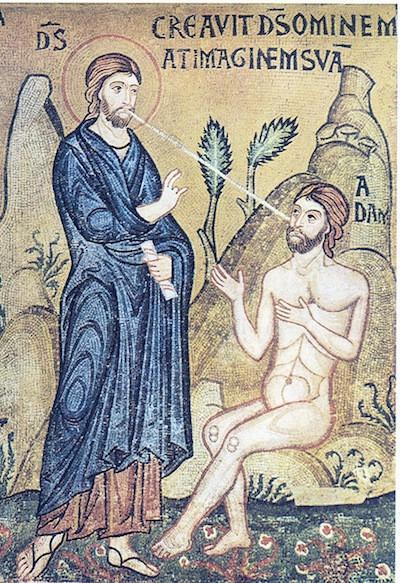
Genesis 1 and the description of Paradise is an important paradigm and model to keep in mind. It establishes man as mediator between heaven & earth. This image of the meeting point between the spiritual and the material is also exemplified in Adam’s creation. He is made of the dust of the earth (the material), and the breath of life from God (the spiritual). This pattern of heaven and earth manifests itself in the role of Adam as the divine Namer of animals (Genesis 2:19-20), and implicitly of plants and all other things in Creation. To name is to establish an identity and to reveal its nature. It is also a way in which the namer establishes authority over the name. The name is spiritual since it is spoken through a breath that serves as a vessel for the words, while the named is material forming the basis for the name. For example, Adam sees lions and gathers them into himself by naming them lions, the name of lions is heavenly and the animals that are named lions are earthly hence Adam mediates between the abstract and the manifest, between categories and the things that fill the category, between species and organism, general and particular etc.

In the Garden, Adam is able to correctly name things as they are, meaning he is able to exercise discernment of the pattern of things. Creation is from God, sustained by God, and will return to God when he fills all things. It is man’s priestly role to mediate between God, and Creation by sacrifice and communion. This may seem quite distant for modern readers but one has to understand that life is sacrificed everytime one has a meal, whether you are vegan (in which pests are killed) or carnivorous (in which animals are slaughtered), or more likely something in between. In the created realm, life sustains life, but all life is sustained by the Life-giver. It is the duty of mankind to, like Adam in Paradise, recognize the Giver of Life and offer what was given by God to man back to God, or in other words to raise matter. In the reverse fashion, God lowers meaning; granting us a purpose, an end, a logos. This dual movement of raising matter and lowering meaning is what constitutes the union of heaven and earth, and of a properly functioning hierarchy (as I have written extensively about in this article. The raising of matter reveals matter to be what it is in fullness and truth, which is blessed and good (Genesis 1:31), and the lowering of meaning is the direction, nourishment, and name (such as in the case of Abram becoming Abraham) that we receive from God.
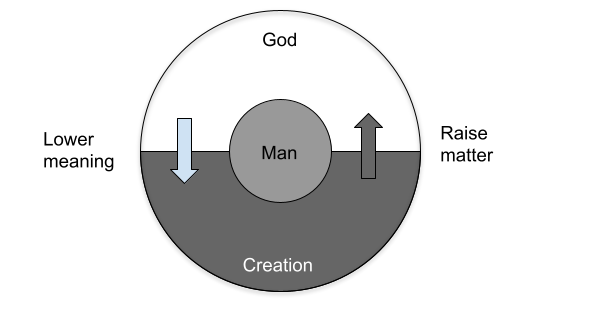
Of course this priestly role was shattered in the Fall, but was restored to Adam in the coming of Christ, but we see glimpses of the restoration of the role many times throughout the Old Testament. For example, in Genesis 18 Abraham hosts 3 angels. Some have interpreted these angels to be symbols for the Trinity, and the Bible is not clear whether it refers to one of them or all of them as “The Lord”. He generously offers them water to wash their feet, bakes bread, selects a tender calf and cooking it, and brought curds and milk to the three angels. This preparation of food is indeed priestly, since it connects the art of cooking to the sacred art of sacrifice. It is a manifestation of the pattern of raising matter and lowering meaning. The matter is raised to heaven, through their consumption by the angels, and the angels lower meaning by delivering to Abraham and Sara news that they will have a son in a year.
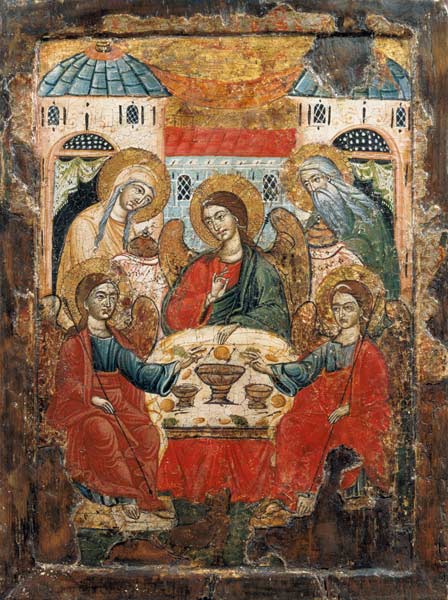
Cooks therefore hold the important role of Adam, naming things that are consumable and desirable and parting them from things that are not consumable and desirable like Christ will eventually separate the sheep from the goats. They do so in the grocery store, but also at the kitchen when they discard things like the outer layer of an onion, or garlic skins. The recognition and organization and preparation of food follows the role of Adam, and chefs, when they properly separate what is good from what is not good, allow those who eat to consume something that will not cause death as the fruit from the Knowledge of Good and Evil did. Rather it should lead to gratitude, joy, and life! Good food prepared with skill and love indeed can be good not only for the body, but also for the soul. Hence the function of the chef doesn’t just only begin to resemble that of a priest but also of a physician; all these roles are icons of our Lord and Savior who is often called the High Priest, and the Physician of our souls and bodies.
“And He fed them with the fat of the wheat, and the honey out of the rock He Satisfied them. Psalm 80:16
Thou has prepared a table before me in the presence of them that afflict me. Thou has anointed my head with oil, and Thy cup which filleth me, how excellent it is! Psalm 22:5
Part 2: Communion, Sacrifice, and the One and the Many
Sacrifice was a regular part of worship in the ancient world. The process went something like this. Firstly, you and your community gathered and someone would lead the ritual by preparing the sacrifice elements. These would often be agricultural products like wheat or rice (depends on the location) prepared into bread or rice cakes. Sometimes they would be animals like goats or cows. These sacrificial elements would then be lathered with oil or alcohol and burnt up (raising matter). This burnt offering would be “consumed” by the spirit, and the rest of the food that wasn’t burnt was eaten by the community. The spirit was hopefully satisfied with the sacrifice, and the people would eat together in peace and harmony with the spirit. Hence, it was a communion between the people worshipping, but also between the community and the spirit to whom they were sacrificing. So on a very generic level, this satisfies the model of heaven and earth.
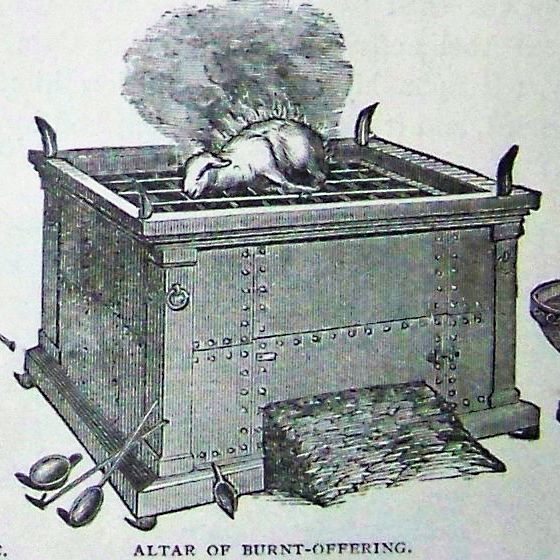
Before we go any further… What does communion even mean? Well it is made up of con which means with (used in words like concelebrate, constrict, congress), and munio which means to defend or strengthen the city walls. This can be interpreted as the many (the body) come together and house the identity (the spirit) of the city. This was the original meaning, but it eventually came to refer to the association and group of Christians that came together and became the body to house the identity of God. Lastly, it came to refer to the Lord’s Supper, in which we are united to each other and also to Christ. That original etymology still holds if we take the defense of the city to mean the maintenance and upholding of our very persons through eating both bread (to strengthen our bodies), and heavenly bread (to strengthen our souls).
Anyway most cooks don’t think about this. Neither do most people who eat food, but… the art of cooking, if one wishes to mythologize it, and reveal its sacred nature, can be seen as a liturgical art. What I mean of course is that cooking is a work or service done for the people which is what the original λειτουργία (leitourgia) meant in Greek. I have already said that chefs resemble the priests in so far as they name things, separate the good from the bad, and heal people, but they can also serve a spiritual role as well if they so chose to. In the recognition of God’s place as the provider of all things, the chef can bless the food and offer it in remembrance to God, and finally give thanks to God. Hence all food that is made by chefs can become in a sense Eucharistic, which in Greek means thanksgiving or thankful, and serve as an image of the Lord’s Supper. Through such a manner of cooking, chefs can even in this “menial” labor do their part in fulfilling their calling to be Christ-like.
When the chef dons the apron and the toque and enters into the kitchen to prepare the food… is this not similar to how the celebrant clothes himself with the cassock and the sticharion and the many other vestments before he enters the holy place and conducts the Divine Liturgy? The ingredients are brought before him and he uses his hands and knives, pots and pans to prepare them in service for others. From the unrelated, different, separate and meaningless ingredients he combines them into something entirely different and intelligible. Someone unfamiliar with cooking would not have no idea what to do given a raw tenderloin, mustard, mushrooms, shallots, butter, prosciutto, flour, egg. But the chef who has prepared it time and time again, would know exactly how to turn that into a beef wellington. Prior to the dish they were individual and apart, but after cooking they are together and something entirely different.
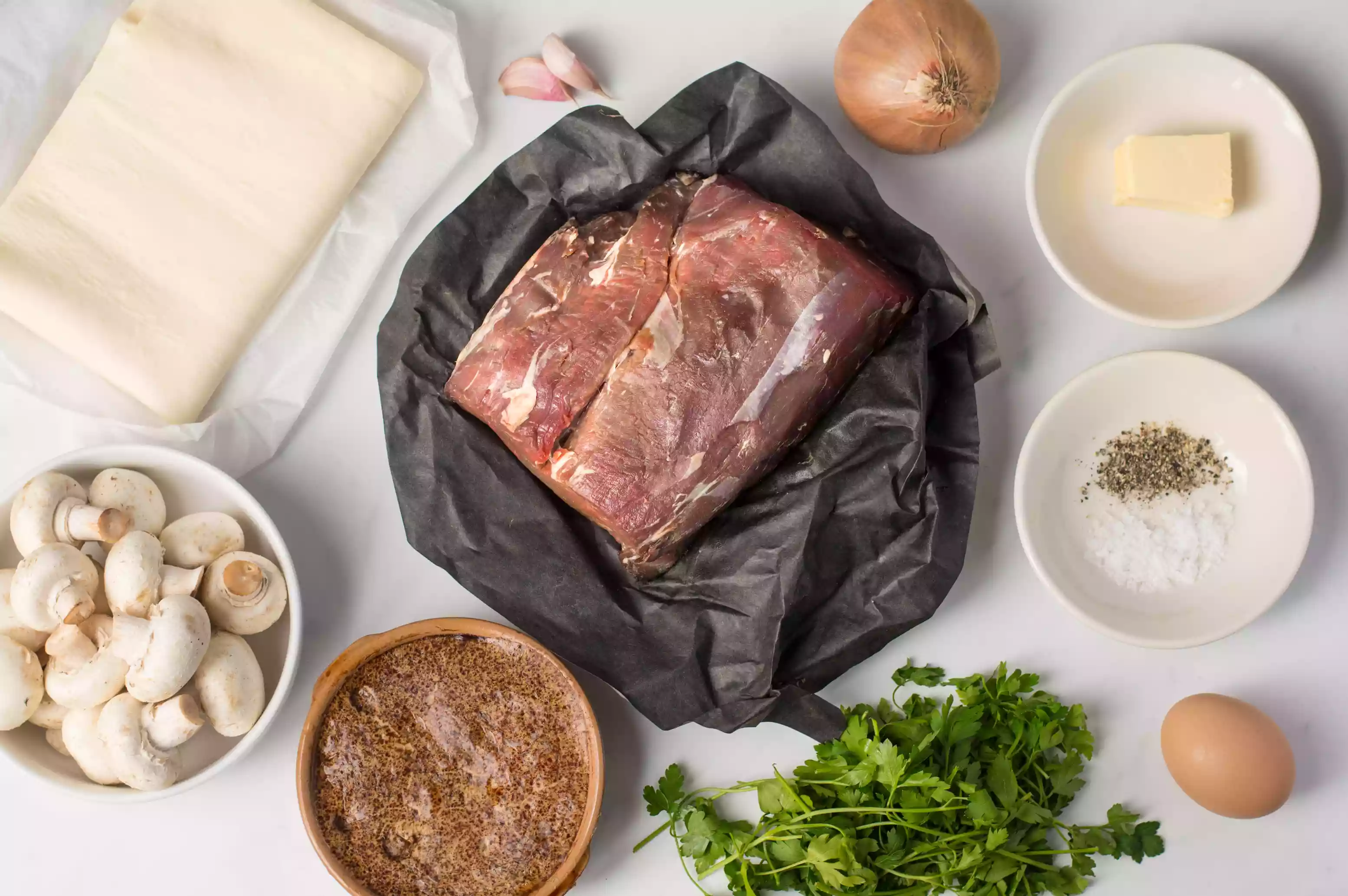
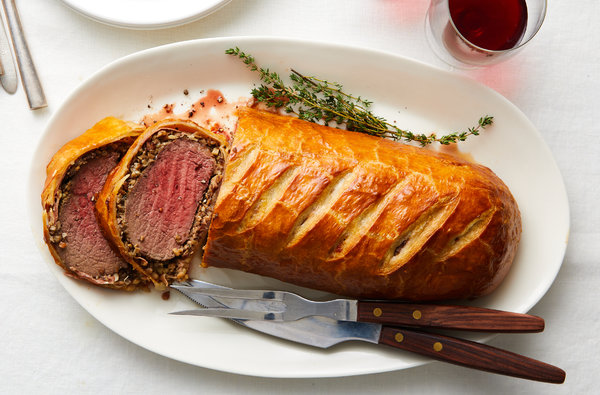
Is this not what God does when we gather as a body of believers? Christ is the Priest, but perhaps he can also be granted the epithet the Chef, in gathering us together and preparing a divine feast for us who without Him and His Love would be apart. As St. Maximus the Confessor says “the many are directed towards the One and are providentially guided in that direction. It is as though they were drawn to an all-powerful center that had built into it the beginning of the lines that go out from it and that gathers them all together. In this way the many are one”. This is a macroscopic and metaphysical view of what happens when food is prepared whether a chef is aware or not. As people gather to feast on the Lord’s supper in churches so do people flock to restaurant for meals elsewhere. Good food gathers people! (As do the people who prepare the food).
It is not just the multitudes of people that are gathered into oneness, but also the food that is gathered into oneness. We either grow food directly, or procure it at the market, and hence are the cause of its existence. The telos of vegetables or livestock is to be consumed. For meat and certain vegetables it must be refined and cannot be consumed as it is. Instead it has to be moved onto the cutting board, cut, seasoned, before being “tried by fire” (Psalm 65:10), until finally after being filled with our love, intention, and heat it can finally come dwell and rest within us. This of course is analogous to God, preparing us for His banquet, and how He tries us by fire, before we can finally come to rest in Him. The difference of course is that God has no need to be sustained by us, as we are sustained by the food we eat. And when we are ultimately brought back to Him we keep our identities rather than having them completely erased despite being in a mystical union with Him. This complete erasure of identities happen when we eat food as the turkey sandwich I had for lunch is no longer a turkey sandwich 24 hours later, but a part of me. So in addition to cooking resembling the priestly duties in a liturgy, chefs also resemble the Divine Logos in their guidance and gathering of the many into the one.
Part 3: Food as a foretaste of Paradise
Yes there is goodness in the world, and that God has blessed it. Yes food and drink makes a man glad. But we must, no matter how tempting it may seem, never relegate Christianity and the immediacy of the Kingdom to the here and now and only the here and now. Instead we are called to recognize that “Every good and perfect gift is from above, coming down from the Father of the heavenly lights” (James 1:17), and that ultimately all the pleasures of this life pale in comparison to those of the next. The eyes of the soul must always set itself on the Creator rather than the created. I say this to temper my exaltation of food and cooking because food can become idolatrous as any good thing can.
As visible things are images of spiritual reality, food is an image of the heavenly food. The Bible always speaks about God through food and images of food. He promises to fill our mouths (Ps 80:10), feed us with the fat of the wheat and honey out of the rock (Ps 80:16). He caused manna to fall from heaven and quail to come up (Exodus 16). He makes our cup overflow (Ps 22:5), and giveth food to all flesh (Ps 135:26). He has prepared a fruit in Paradise to grant us eternal life. He came down and take flesh that we could taste and see that the Lord is good (Psalm 33:8). Christ, the Lamb of God, is the bread from heaven, and whosoever eats of this bread will live forever. He scandalized his followers and even his disciples when He said, “Most assuredly, I say to you, unless you eat the flesh of the Son of Man and drink His blood, you have no life in you” (John 6:53). This of course, is the same bread referenced in Luke 14:15 “Blessed is everyone who will eat bread in the Kingdom of God”. God is calling us to his banquet table, and when our bellies are filled & satisfied is it not just to call others to share in his heavenly feast? Of course all are invited but none are worthy (Matthew 22:8), but by his loving kindness and great mercy we sit and eat at His table.
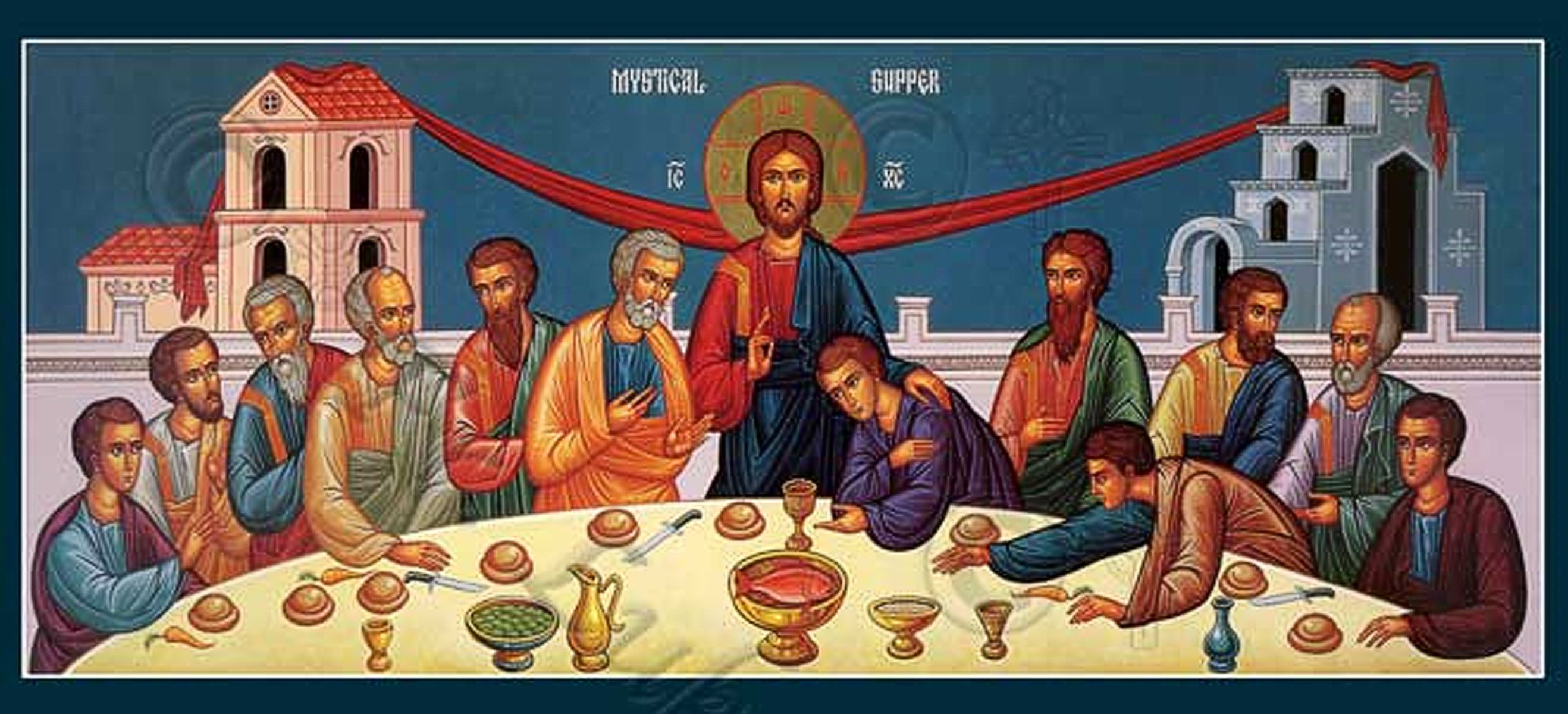
St. Ephrem the Syrian speaks of how man is nourished in the Paradise to come.
“The breezes of Paradise
hasten to attend to the just;
one blows satiety,
another quenches the thirst” Hymns on Paradise 9:8
“Who has eaten to satisfaction without any food,
or drunk and become merry without any drink?” Hymns on Paradise 9:9
“For that which is spiritual
has the Spirit’s breath as its nourishment” Hymns on Paradise 9:10
The soul requires sustenance
appropriate to its needs;
it is by the Nourisher of all
that the soul receives its fill,
and not any other variety of food; Hymns on Paradise 9:18
So let us not forget our ultimate goal whether you are a chef, or someone who just happens to have stumbled upon this article. If we forget and are careless, then we may end up at the feast without a wedding garment, and be cast out into the outer darkness (Matthew 22:12). Instead let us clothe ourselves with Christ , and be vigilant that we do not stain our garments or lose them entirely so that we are ready for the Bridegroom when He returns and gathers us to His banquet.
I will end with the last section of St. Ephrem’s 9th Hymn on Paradise as a prayer.
Grant Lord, that I and those dear to me
may together there,
find the very last remnants
of Your gift!
Just the sight of Your Dear One
is a fountain of delight;
whoever is worthy
to be ravished thereby will despise ordinary food;
all who look upon You
will be sustained by Your beauty.
Praises be to Your splendor.
References
Hymns on Paradise - St. Ephrem the Syrian (SVS Press Popular Patristic Series) On the Cosmic Mystery of Christ - St. Maximus the Confessor (SVS Press) Psalter - Holy Transfiguration Monastery
Share